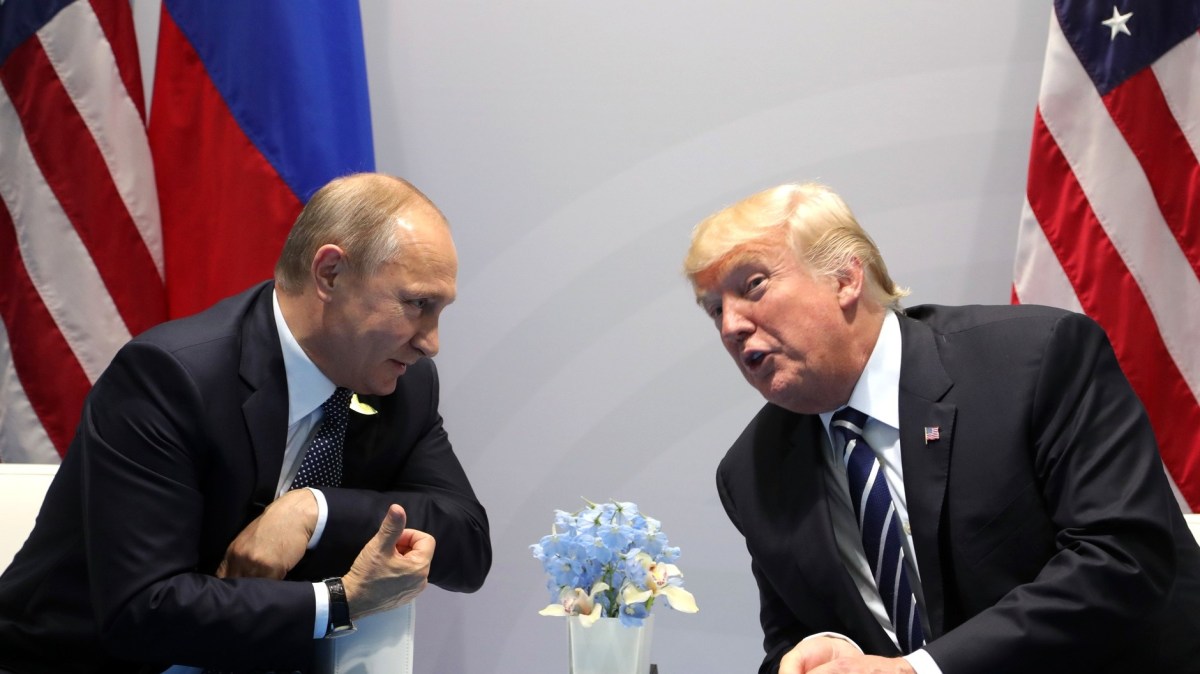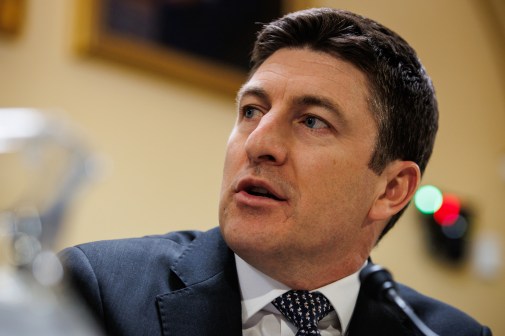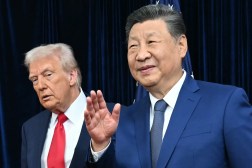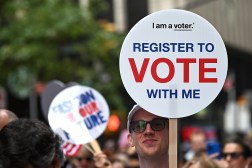Trump’s executive order designed to ‘counter the visuals of Helsinki’

A top State Department official says President Donald Trump’s new executive order to combat foreign election-meddling serves as a check on the optics of the Helsinki Summit in July, where Trump questioned whether the Russian government interfered in the 2016 U.S. election.
The executive order allows for “automatic sanctions” to kick in when U.S. officials find evidence of foreign interference in the electoral process. That automaticity “was designed to counter the visuals of Helsinki,” Michele Markoff, the State Department’s deputy coordinator for cyber issues, said Wednesday at an Atlantic Council panel discussion in Washington, D.C.
The order itself also gives agencies outside the White House a firm hand in the process, according to Markoff.
“The president can always decide ‘no,’” – meaning sanctions won’t be imposed — “but [the executive order] is designed to have these assessments come up from the bottom and be presented with the notion that there should in fact be a consequence to bad behavior,” Markoff said.
“All policy is going to be discretionary,” she said, “but I applaud the attempt to make it harder to … let something just fall away and not be countered – especially if the intelligence community comes up with an assessment that something happened and somebody did it.”
At a press conference in July, Trump stood alongside Russian President Vladimir Putin and cast doubt on the U.S. intelligence agencies’ conclusion that the Kremlin interfered in the 2016 presidential election. Trump walked back his comments the day after the summit, saying he accepted the findings of his intelligence agencies, but his performance at the summit triggered bipartisan condemnation from Capitol Hill.
In a statement Wednesday after signing the executive order, Trump said the directive will “ensure that we can swiftly identify and punish any foreign interference in our elections,” adding that “the United States will not tolerate any form of foreign meddling in our elections.”
Nonetheless, Trump’s history of questioning his intelligence agencies’ assessment leaves many people skeptical about his willingness to crack down on foreign meddling.
During the panel discussion, Laura Galante, a former executive at cybersecurity company FireEye, said that Trump’s “words in Helsinki probably speak louder than executive action in this case…to the Russians and others.”
Asked to respond to that opinion, Markoff told reporters: “I don’t think that’s the case,” and pointed out that Trump signed the executive order. She said she had not yet studied the text of the order, which was released shortly before the panel discussion began.
Several lawmakers said the executive order wouldn’t be enough to deter foreign meddling and called for the passage of legislation that would impose stricter sanctions on such interference.
“We remain woefully underprepared to secure the upcoming elections, and an executive order is simply no substitute for congressional action, such as the strong measures included in the bipartisan DETER Act,” said Sen. Mark Warner, D-Va., the top Democrat on the intelligence committee.
That legislation lays out Russia-specific sanctions in case the U.S. intelligence community determines Moscow is behind any election interference.
By contrast, national security adviser John Bolton said Wednesday that the executive order was not “country-specific.”






